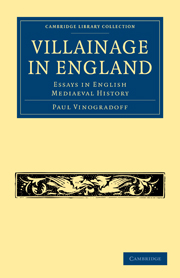Summary
When the time comes for writing a history of the nineteenth century, one of the most important and attractive chapters will certainly be devoted to the development of historical literature. The last years of a great age are fast running out: great has been the strife and the work in the realm of thought as well as in the material arrangement of life. The generations of the nineteenth century have witnessed a mighty revival of religious feeling; they have attempted to set up philosophical systems as broad and as profound as any of the speculations of former times; they have raised the structure of theoretical and applied science to a height which could hardly have been foreshadowed some two hundred years ago. And still it is to historical study that we have to look as the most characteristic feature of the period. Medieval asceticism in its desperate struggle against the flesh, and Puritanism with its sense of individual reconciliation with God, were both more vigorous forms of religious life than the modern restorations of faith and Church, so curiously mixed up with helplessness, surrender of acquired truth, hereditary instincts, and utilitarian reflection. In philosophy, Hegel's metaphysical dialectic, Schopenhauer's transformation of Kant's teaching, and the attempts of English and French positivism at encyclopaedical science may be compared theoretically with Plato's poetical idealism or with the rationalistic schools of the seventeenth and eighteenth centuries.
- Type
- Chapter
- Information
- Villainage in EnglandEssays in English Mediaeval History, pp. 1 - 40Publisher: Cambridge University PressPrint publication year: 2010First published in: 1892

